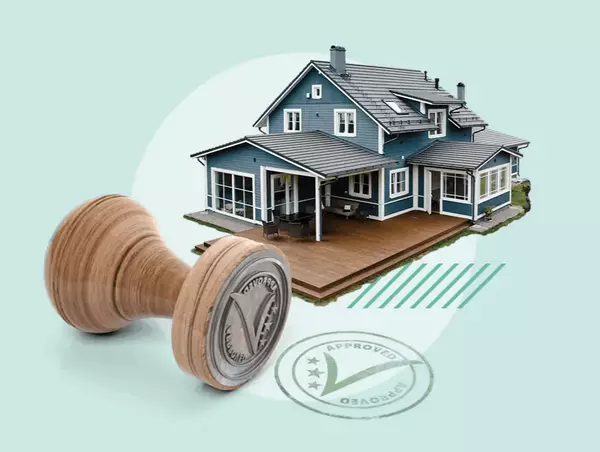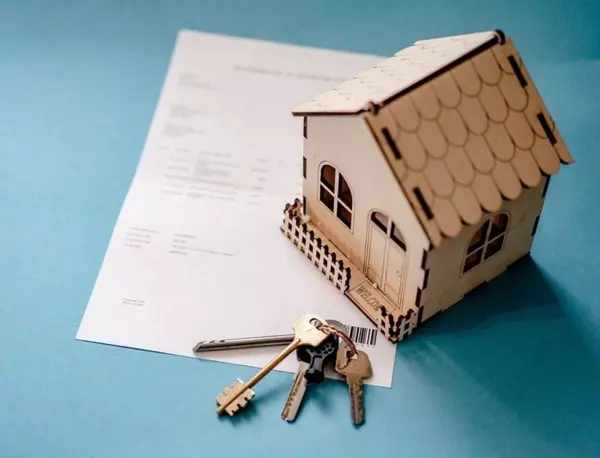Fixed vs. Adjustable Rate Mortgages: Pros and Cons for Homebuyers

Choosing the right mortgage type is one of the most important decisions for any homebuyer. The mortgage you select can affect your monthly payments, the total interest paid, and your financial flexibility in the years to come. Two of the most common types are fixed-rate mortgages (FRMs) and adjustable-rate mortgages (ARMs). Here’s a breakdown of the pros and cons of each to help you decide which might be best for your needs.
What is a Fixed-Rate Mortgage?
A fixed-rate mortgage is a home loan with an interest rate that remains the same for the entire term of the loan. This means your monthly payment amount is consistent over time, providing a predictable expense for budgeting purposes.
Typical Fixed-Rate Terms:
- 30-Year Fixed-Rate Mortgage: A popular choice offering lower monthly payments over a longer period.
- 15-Year Fixed-Rate Mortgage: Offers a shorter repayment term with higher monthly payments but reduces overall interest costs.
Pros of Fixed-Rate Mortgages
- Predictability: Your interest rate and monthly payments remain the same for the entire loan term, which helps with long-term budgeting.
- Protection from Market Changes: With a fixed rate, you’re safeguarded against rising interest rates, so you won’t experience payment increases even if the market fluctuates.
- Stability for Long-Term Ownership: Fixed-rate mortgages are often the best choice if you plan to stay in your home for many years.
Example Scenario: If you’re buying a home to settle down long-term, a fixed-rate mortgage offers stability and predictability, making it easier to manage household finances without worrying about potential interest rate increases.
Cons of Fixed-Rate Mortgages
- Higher Initial Rates: Fixed-rate mortgages often start with higher interest rates compared to adjustable-rate options, which may mean higher initial monthly payments.
- Limited Flexibility: If market rates drop significantly, you could be paying a higher interest rate than you would with an adjustable mortgage. Refinancing is an option, but it involves costs and paperwork.
Consideration: If you plan to move or refinance within a few years, a fixed-rate mortgage may lock you into a higher rate without offering flexibility to take advantage of lower interest options.
What is an Adjustable-Rate Mortgage (ARM)?
An adjustable-rate mortgage starts with a lower fixed interest rate for an initial period, then adjusts periodically based on current market rates. The most common ARM types are 5/1, 7/1, and 10/1, meaning the initial fixed-rate period is five, seven, or ten years, respectively, followed by annual adjustments.
Example of an ARM Structure:
- 5/1 ARM: The interest rate is fixed for the first five years, then adjusts once per year based on market conditions.
Pros of Adjustable-Rate Mortgages
- Lower Initial Interest Rates: ARMs often start with lower rates than fixed-rate mortgages, which can make monthly payments more affordable in the initial years.
- Good for Short-Term Ownership: If you plan to sell or refinance within the fixed period, an ARM can save you money with a lower rate during the time you own the home.
- Potential Savings if Rates Drop: If market rates decrease after the fixed period, your rate may adjust down, potentially lowering your monthly payment.
Example Scenario: If you’re buying a starter home and plan to move within five years, a 5/1 ARM could allow you to take advantage of lower payments during the time you own the home.
Cons of Adjustable-Rate Mortgages
- Unpredictability: After the initial fixed period, your rate can adjust based on market conditions, which means your monthly payments could increase.
- Complexity in Budgeting: With the potential for fluctuating payments, ARMs can make budgeting more challenging after the initial fixed period.
- Higher Payments if Rates Increase: In a rising rate environment, your payments could increase significantly, potentially straining your finances.
Consideration: ARMs are riskier than fixed-rate mortgages because of the potential for payment increases. They’re often best for buyers who have a flexible financial situation or plan to move or refinance within a few years.
Fixed-Rate vs. Adjustable-Rate: Which is Right for You?
The choice between a fixed-rate and adjustable-rate mortgage largely depends on your financial goals, time horizon, and tolerance for risk. Here’s a quick comparison to help you decide:
| Factor | Fixed-Rate Mortgage | Adjustable-Rate Mortgage (ARM) |
|---|---|---|
| Interest Rate Stability | Fixed for the life of the loan | Fixed initially, then adjusts periodically |
| Best For | Long-term ownership | Short-term ownership or plans to refinance |
| Initial Interest Rate | Higher | Lower |
| Risk of Payment Increases | None | Moderate to High |
| Predictability | High | Moderate to Low |
Tips for Choosing the Right Mortgage
- Consider Your Timeline: If you plan to stay in your home long-term, a fixed-rate mortgage provides stability. If you’re likely to move within a few years, an ARM could offer savings.
- Evaluate Your Financial Flexibility: If you have a stable income and can handle potential payment increases, an ARM might be a good option. For those on a tighter budget, the predictability of a fixed-rate mortgage may be more appealing.
- Stay Informed on Market Trends: Keeping an eye on interest rate trends can help you decide the right time to buy or refinance. If rates are low, a fixed-rate mortgage could be advantageous, while rising rates may favor an ARM for short-term benefits.
Pro Tip: Sphere Global’s mortgage experts can guide you through the process, offering insights on both options and helping you make a decision that aligns with your goals. Contact us to connect with a specialist who can help you understand the details and find the best mortgage solution for your situation.
Whether you choose a fixed-rate or adjustable-rate mortgage, the right decision depends on your financial goals and lifestyle. Fixed-rate mortgages offer stability and predictability, while ARMs provide flexibility and potential savings in the short term. By understanding the pros and cons of each option, you can choose the mortgage type that best suits your needs.
Ready to find the perfect mortgage for your new home? Contact Sphere Global today to speak with one of our mortgage experts, and let us help you find a solution that fits your financial and homeownership goals.
Categories
Recent Posts










"My job is to find and attract mastery-based agents to the office, protect the culture, and make sure everyone is happy! "
14201 n Hayden rd, Ste c4, Scottsdale, Az, 85260, United States

